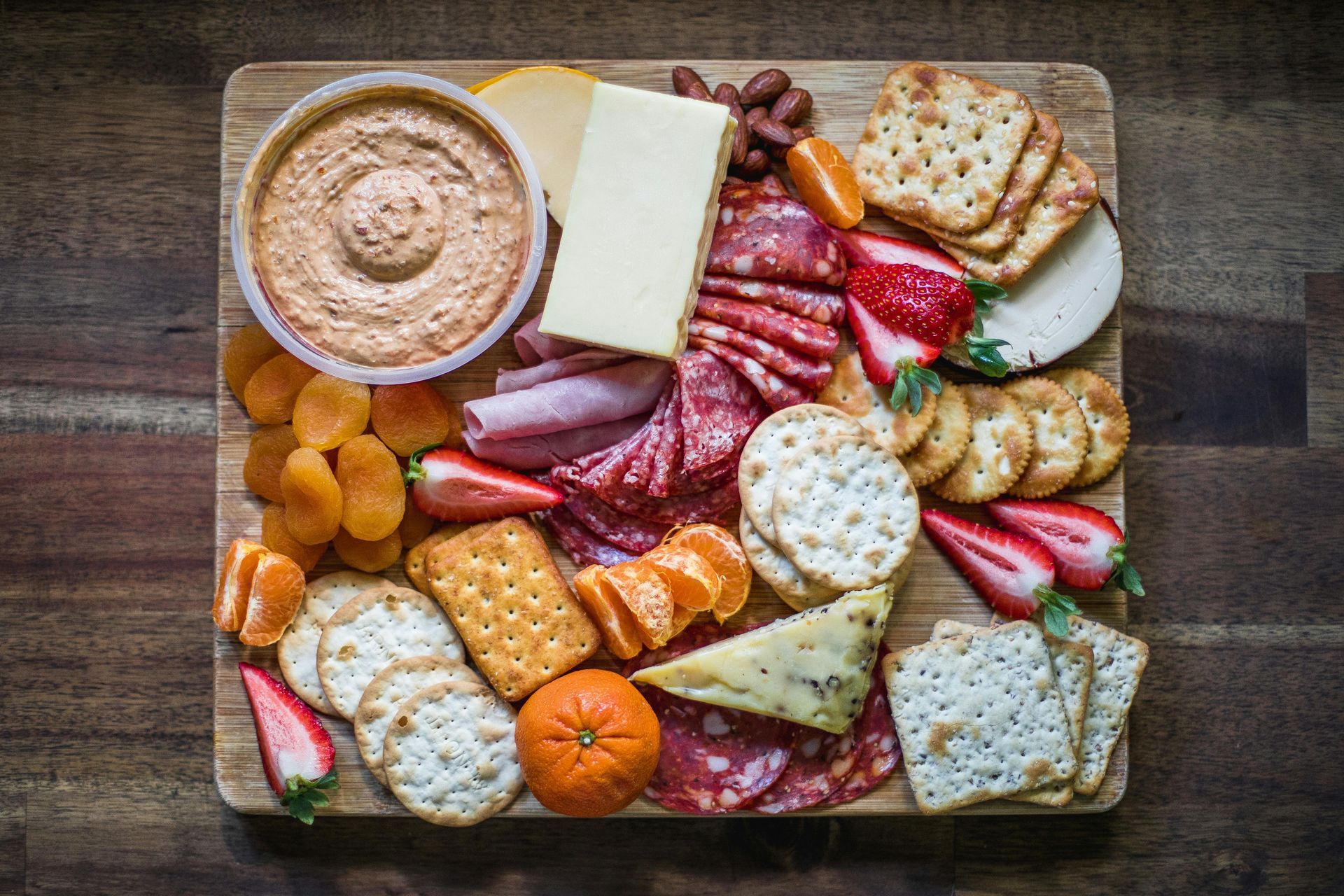
It’s time to learn the basics and review some heart healthy foods for you and your family. Here are eight foods that can help reduce your risk of heart disease.
1. Extra-Virgin Olive Oil
Extra-virgin olive oil is a common ingredient in the Mediterranean diet, which is associated with low mortality rates for cardiovascular disease. When selecting olive oil, look for “extra virgin” and ideally organic as well. Most salad dressings use cheaper industrial seed oils such as canola, soybean, or sunflower oil as the base ingredient. Look for an olive oil or avocado oil–based salad dressing, and make your own whenever possible. Olive oil can also be used for cooking at low to medium temperatures.
2. Raw Nuts and Seeds
Raw nuts and seeds have been found to have a beneficial impact on many cardiovascular risk factors. They can be high in omega-3 fatty acids—which help lower the levels of cholesterol and LDL (low-density lipoproteins or “bad” cholesterol) in the blood—and are great additions to your daily snack, on top of salads, or in smoothies. Next time you’re at the grocery store, pick up the following:
- Almonds
- Walnuts
- Pecans
- Chia Seeds
- Hempseeds
3. Avocados
According to scientific research, avocados contain the ideal fatty-acid ratio needed to promote healthy blood lipid profiles (blood tests that measure your cholesterol levels) and support heart health. Avocados can be consumed on their own, as a base for a dip, in salad dressings, or even in smoothies for a creamy texture.
4. Wild Fatty Fish
Certain fish have high levels of omega-3 fatty acids, which has been found to reduce your risk of cardiac death. Consume one pound of wild fish per week or take a high-quality fish oil supplement. Fish with high concentrations of omega-3 fatty acids include:
- Albacore
- Tuna
- Sardines
- Salmon
- Mackerel
- Herring
5. Leafy Green Vegetables
A diet rich in leafy greens can also help reduce your risk of high blood pressure and fatal coronary heart disease. You can eat these raw in a salad or sauté them with other vegetables. Try these leafy greens:
- Spinach
- Mixed Greens
- Arugula
- Chard
6. Dark Chocolate
Consumption of dark chocolate has been linked to improvement of coronary vascular function. Look for dark chocolate that is more than 80 percent cacao and that has less than 5 grams of sugar per serving to ensure that you are getting the health benefits.
7. Green Tea
Green tea is high in antioxidants, helping combat oxidative stress in the body, which may play a crucial role in cardiac and vascular abnormalities. Drink 1-2 cups of green tea per day to give your body a great antioxidant booster. Not all green tea tastes the same, so experiment with different kinds until you find one that’s good for you. Try:
- Sencha
- Jasmine
- Matcha
8. Foods Rich in Vitamin K
Adequate consumption of foods rich in Vitamin K can help to reduce risk of cardiovascular disease. These foods include:
- Chicken breast
- Grass-fed ground beef
- Natto, a traditional Japanese food made from fermented soybeans
- Egg yolks (from pasture-raised chickens)
Foods to Avoid and Alternatives
When you are looking at food labels, one of the best things you can do to help prevent heart disease is avoid industrial seed oils. These oils are high in omega-6 polyunsaturated fatty acids (PUFAS) and have been shown to increase the risk of heart disease due to oxidative damage and inflammation. These oils are primarily found in packaged foods, and many restaurants cook with them as well. Industrial seed oils to avoid include:
- Corn
- Soy
- Canola
- Vegetable
- Safflower
- Sunflower
As an alternative, try cooking with oils like:
- Olive
- Avocado
- Coconut
Other foods to reduce or eliminate from your diet are sugar and processed carbohydrates. These food groups cause spikes in insulin levels, which contributes to oxidative stress in your body, which can negatively affect heart health. While sugar is commonly found in desserts, it also hides in places like sauces, flavored yogurts, and salad dressings. Processed carbohydrates break down into sugar in the body, and can therefore spike insulin as well. These carbohydrates include:
- Breads
- Pastas
- Cereal
- Crackers
- Pastries
Consider switching to more nutrient dense and fiber-rich carbohydrates to prevent blood sugar spikes, such as:
- Sweet Potatoes
- Brown Rice
- Quinoa
- Steel Cut Oatmeal
From a holistic perspective, it is important to note that lifestyle factors such as stress management, sleep, and exercise are just as crucial for cardiovascular health as the food you eat. Especially if you have a family history of heart disease, take a holistic approach to prevent heart disease through a combination of dietary and lifestyle factors.
*Editor’s Note: The information in this article is intended for your educational use only; does not necessarily reflect the opinions of the Chopra Center’s Mind-Body Medical Group; and is not a substitute for professional medical advice, diagnosis, or treatment. Always seek the advice of your physician or other qualified health providers with any questions you may have regarding a medical condition and before undertaking any diet, supplement, fitness, or other health program.
Learn how to integrate easy-to-master Ayurvedic healing techniques into your modern lifestyle and take steps towards having a healthy heart at Journey into Healing. Learn More.
About the Author








































































































